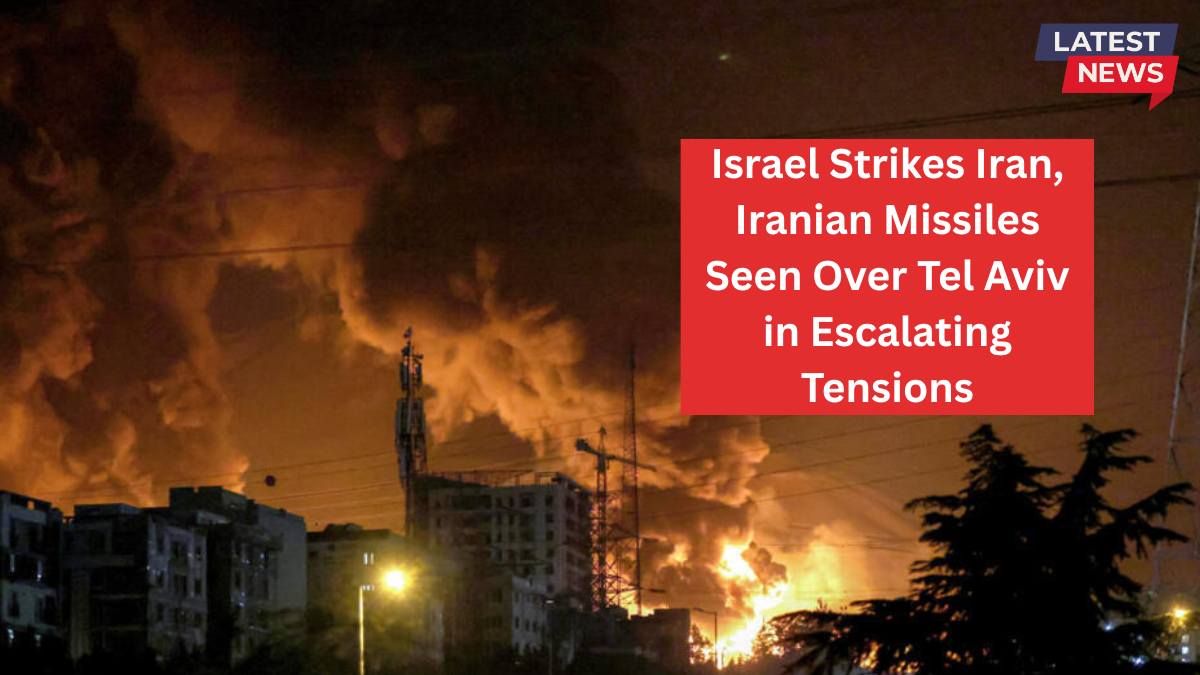Tensions between Israel and Iran have escalated dramatically as Iranian missiles were spotted flying over Tel Aviv on Wednesday, marking a significant escalation in the ongoing conflict between the two countries. This new wave of missile attacks follows Israel’s decision to intensify its military operations targeting Iran’s nuclear facilities and other strategic sites.
The Escalating Conflict Between Israel and Iran
The conflict between Israel and Iran has been simmering for years, with Israel repeatedly accusing Iran of pursuing nuclear weapons, which it claims pose a direct threat to its security. In response, Israel has engaged in covert operations, cyberattacks, and, more recently, direct military strikes on Iranian soil.
However, the situation took a dangerous turn this week after Israel widened its strikes on Iranian military infrastructure. Israeli fighter jets targeted several key Iranian military installations, including air defense systems and missile launch sites. The attacks were part of an ongoing Israeli campaign aimed at neutralizing Iran’s growing military capabilities.
Iran’s Retaliation: Missiles Over Tel Aviv
In what appears to be a direct retaliation, Iran launched several missiles at Israel. These missiles were seen flying over Tel Aviv, Israel’s largest city and economic hub. The Israeli air defense system, Iron Dome, successfully intercepted many of the incoming missiles, preventing major damage. However, a few missiles managed to breach the defense system, leading to minor casualties and property damage.
The Iranian government has yet to make an official statement regarding the missile launches, but sources in Tehran confirm that it views Israel’s recent airstrikes as a provocation and has vowed to defend itself against Israeli aggression. The missiles fired at Tel Aviv are believed to have been launched from Iranian soil, though some reports suggest they may have been fired from locations within Syria, where Iranian forces are also active.
Israeli Response: Heightened Military Readiness
Israel’s military has gone on high alert following the missile attack. Prime Minister Benjamin Netanyahu addressed the nation, warning of a prolonged conflict if Iran continues its military actions against Israel. He emphasized that the country would take all necessary steps to defend its citizens and sovereignty.
In addition to ramping up airstrikes on Iranian targets, Israel has reportedly deployed additional Iron Dome batteries and other advanced defense systems in high-risk areas like Tel Aviv and Haifa. The IDF (Israel Defense Forces) also confirmed that its intelligence services are monitoring Iranian movements closely to prevent further missile strikes.
Global Reactions to the Escalation
The recent exchange of missile strikes has drawn reactions from the international community. The United States, which has long been a close ally of Israel, reiterated its support for Israel’s right to defend itself against Iranian aggression. Secretary of State Antony Blinken condemned Iran’s missile launches, stating that such actions “will not be tolerated” and that the U.S. stands firmly with its Israeli partners.
On the other hand, several nations, including Russia and China, have expressed concerns over the growing tensions in the region. Both countries have called for an immediate ceasefire and dialogue between Israel and Iran to avoid further escalation. The United Nations has also urged both sides to de-escalate, but so far, neither party has shown signs of backing down.
Potential Impact of the Conflict
The recent missile strikes could have significant consequences not only for Israel and Iran but also for the broader Middle East region. The Gulf states, already nervous about Iran’s growing influence, may find themselves forced to take sides in the conflict. Saudi Arabia, the UAE, and other Gulf nations have expressed support for Israel in the past, particularly in its fight against Iran-backed militias. However, this could change if the conflict intensifies.
Moreover, the global oil market could feel the impact of any further escalation. Iran’s strategic position near key oil shipping routes, particularly in the Strait of Hormuz, makes the country a crucial player in global energy security. Any disruption in this region could lead to significant spikes in oil prices, further destabilizing the global economy.
A Dangerous Escalation
The situation in Israel and Iran is becoming increasingly volatile, with the missile attacks over Tel Aviv serving as a stark reminder of the risks involved. As both countries continue to exchange blows, the potential for a full-scale conflict grows, with regional and global implications. While Israel’s advanced defense systems may have mitigated some of the damage, the threat from Iran remains real, and the possibility of more missile strikes in the coming days is high.
As world leaders urge restraint, only time will tell whether diplomacy can halt the growing conflict, or if the situation will spiral into an all-out war in the Middle East.




